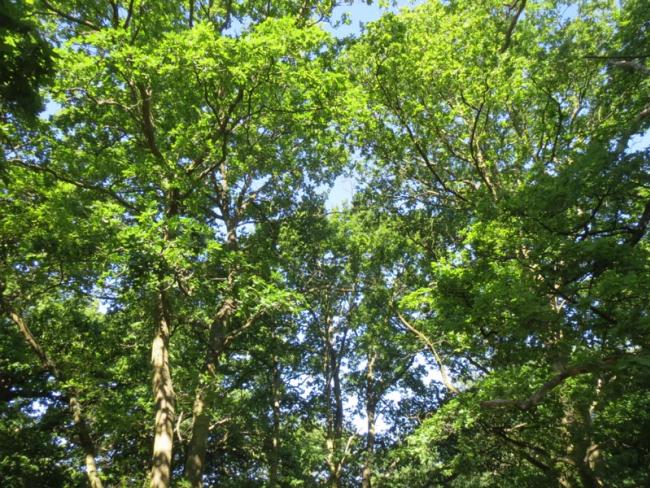A “Buy British” scheme is to be launched by the Woodland Trust, according to The Times, using Brexit freedoms from EU directives to protect our woodlands from pests and diseases brought in by imported trees. This follows its publication in September of Growing the Future, a paper about the implications of leaving the EU, which called the dismantling of the Common Agricultural Policy “the best opportunity in a generation to rethink our environmental futures”.
Until now EU single market rules have made it difficult to prevent the importation of diseased stock, said Austin Brady, director of conservation at the Woodland Trust. Six million trees have been imported in the past three years, and this is a major way diseases are introduced. Now, he said, we have a great opportunity to impose tighter controls.
The Trust, Britain’s largest woodland protection charity with 73 square miles of woods, is advocating a “UK-grown” accreditation and labelling scheme, which would require nurseries to sell trees which both come from British seed and have been grown here. Under EU regulations trees can be grown partly in foreign nurseries and partly here, but still be labelled British grown.
Ash dieback
A number of dangerous pests and diseases have resulted from this lack of control. Ash dieback arrived in 2012 on imported trees, and is now endangering our native ashes. Leaf miner moths were introduced from abroad in 2002 and are threatening the stock of horse chestnuts here. British oaks are now being seriously attacked by oak processionary moths from imported saplings in 2005. These threats could prove as serious in their turn as Dutch elm disease, which destroyed the great majority of elms in Britain in the last century.
The Horticultural Trades Association’s director of horticulture, Raoul Curtis-Machin, commenting on the launch, said that growers want to sell more home-grown trees, but were often importing saplings to meet sudden surges in demand due to unpredictable government grant administration. Nurseries need two years’ notice of how many trees will be required – so this also needs sorting out.
“There is a huge risk from importing non-native species in pot plants,” Matt Shardlow, the chief executive of Buglife, an insect conservation charity, told The Times. “If people want to stop this, then purchasing British is one way to do it,” he said. Imported potted plants should be banned, he added, until tight controls are introduced.
• Related article: Ashes to ashes
• Related article: Heard of the EU Plant Variety Agency? If it hasn’t tested your seeds, you can’t grow them

